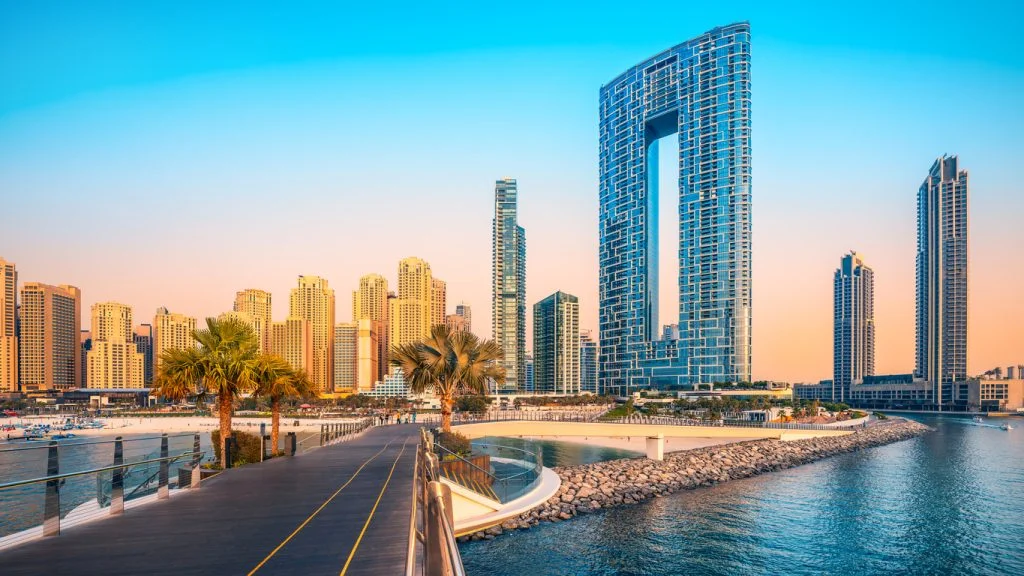
Introduction
Dubai, known for its iconic skyline, luxurious lifestyle, and business-friendly environment, has become a global hub for real estate investment. With its strategic location, tax-free advantages, and high rental yields, invest in Dubai attracts investors worldwide.
Why Invest in Dubai Real Estate?
Dubai’s real estate market offers several advantages, making it a preferred choice for investors. Here are some compelling reasons to invest:
- High Rental Yields: Dubai provides some of the highest rental returns globally, averaging between 5% and 9% annually.
- Tax-Free Investment: There is no capital gains tax or income tax on rental income, ensuring maximum returns for investors.
- Stable and Growing Economy: Dubai’s economy is diverse, supported by tourism, trade, and finance, ensuring stability in property investments.
- Strong Regulatory Framework: The Dubai Land Department (DLD) and Real Estate Regulatory Authority (RERA) have implemented strict laws to protect investors and maintain market transparency.
- Residency Visa for Investors: Property investors can qualify for long-term residency visas, depending on the investment amount.
- World-Class Infrastructure: Dubai boasts state-of-the-art infrastructure, including smart cities, luxury developments, and excellent connectivity.
Key Areas for Real Estate Investment
Dubai offers a range of investment opportunities in prime locations. Some of the top areas include:
- Downtown Dubai: Home to the Burj Khalifa and Dubai Mall, Downtown offers luxury apartments with high rental demand.
- Dubai Marina: Known for waterfront living, this area attracts both residents and tourists, ensuring excellent rental income.
- Palm Jumeirah: One of the most prestigious locations, offering luxury villas and beachfront apartments.
- Business Bay: A commercial hub with a mix of residential and office spaces, ideal for long-term capital appreciation.
- Jumeirah Village Circle (JVC): Offers affordable investment options with growing demand.
- Dubai Hills Estate: A master-planned community with villas, townhouses, and golf course views, ideal for families.
Types of Real Estate Investment in Dubai
Investors can choose from various property types, depending on their investment goals:
- Residential Properties: Apartments, villas, and townhouses for rental income or resale.
- Commercial Properties: Offices, retail spaces, and warehouses for business investments.
- Off-Plan Properties: Buying properties under construction, often at lower prices with flexible payment plans.
- Holiday Homes & Short-Term Rentals: Investing in Airbnb-style properties can generate higher returns due to Dubai’s thriving tourism sector.
Legal Aspects and Requirements
Invest in Dubai real estate involves understanding legal procedures and requirements:
- Foreign Ownership Laws: Expats and non-residents can buy freehold properties in designated areas.
- Property Registration: Transactions must be registered with the Dubai Land Department (DLD).
- Title Deed: A legal document proving property ownership, issued by the DLD.
- Service Charges: Owners must pay annual maintenance fees for residential properties.
- Real Estate Agents & Brokers: Investors should work with RERA-certified agents to ensure legal compliance.
Investment Strategies
Choosing the right investment strategy is crucial for maximizing returns:
- Buy-to-Let Strategy: Purchasing properties for rental income with stable occupancy rates.
- Fix and Flip: Buying undervalued properties, renovating them, and selling for profit.
- Off-Plan Investments: Buying properties under development at lower prices and selling after appreciation.
- Long-Term Capital Growth: Holding onto properties for future value appreciation.
Financing and Mortgage Options
Investors can finance their Dubai real estate purchases through various mortgage options:
- Bank Loans: Many UAE banks offer mortgages for expats with a 20%-25% down payment.
- Developer Payment Plans: Many developers provide flexible installment plans for off-plan properties.
- Islamic Financing: Sharia-compliant mortgage options available for Muslim investors.
Potential Risks and Challenges
Despite its advantages, investing in Dubai real estate has some risks:
- Market Fluctuations: Property prices can be affected by global economic conditions.
- Vacancy Risks: Rental demand may fluctuate based on seasonality and market trends.
- Legal Complexities: Foreign investors must ensure compliance with Dubai’s property laws.
- Developer Delays: Off-plan projects may face construction delays, affecting investment timelines.
Conclusion
Dubai’s real estate market presents lucrative opportunities for investors, offering high returns, tax benefits, and long-term growth potential. By choosing the right property type, location, and investment strategy, investors can maximize their gains while mitigating risks. As the city continues to grow, investing in Dubai real estate remains a smart choice for both local and international investors.
Check out new and latest article to see by clicking here.